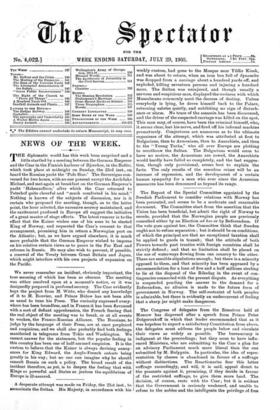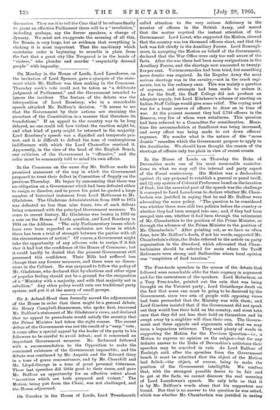The Congress of delegates from the Zemstvos held at Moscow
has dispersed after a speech from Prince Peter Dolgoroukoff in which that leader recommended that as it was hopeless to expect a satisfactory Constitution from above, the delegates must address the people below and circulate their views as widely as possible. The bureaucracy is indignant at the proceedings; but they seem to have influ- enced Ministers, who are submitting to the Czar a plan for an advisory Parliament much more liberal than the one submitted by M. Bulygnin. In particular, the idea of repre- sentation by classes is abandoned in favour of a suffrage without distinctions. The Reactionaries fear this latter suffrage exceedingly, and will, it is said, appeal direct to the peasants against it, promising, if they decide in favour of the restricted suffrage, to give them more land. The decision, of course, rests with the Czar ; but it is evident that the Government is seriously weakened, and unable to refuse to the nobles and the intelligents the privilege of free
discussion. They use it to tell the Czar that if he refuses finally to grant an effective Parliament there will be a "revolution," including perhaps, say the fiercer speakers, a change of dynasty. We must not exaggerate the meaning of all this, for Russia is very large, but as evidence that everything is shaking it is most important. That the machinery which maintains order is beginning to crumble is plain from the fact that a great city like Novgorod is in the hands of "rioters," who plunder and murder "respectably dressed people" with impunity.







































